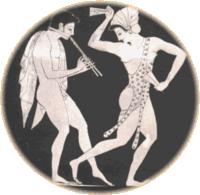Sex On Uncyclopedia
I don't like talking about sex[edit | edit source]
I normally do not discuss sexuality on the Internet, as a rule, but in order to make my case clear, I must do so just this once.
What I think about sex is none of your business. How I choose to live my life and whether I want to read or be exposed to sexually explicit content is my business, and is none of yours. What you think about sex, how you choose to live your life and whether you want to read or be exposed to sexually explicit content is none of my business.
I don't care what you want[edit | edit source]
I do not want to be confronted with sexually explicit content.
(Sending some to me because I wrote that isn't funny so please show everyone that you are not a moron by not doing it.)
The fact that I don't want to be confronted with sexually explicit content does not make me an abnormal person. I am not a freak and I do not think that sex is a bad thing or that people should not enjoy sex. I hold very strong views on whom I will have sex with and on what I think is right and wrong and so forth, but that is my lifestyle choice. No one - especially someone I have never met on the Internet - should try to interfere with that lifestyle choice. Disagreeing with it is fine, but not interfering with it. The choice is mine.
I find it extremely offensive[edit | edit source]
People will post sexually explicit content and will attack people who for whatever reason don't want to be constantly confronted with it - as if such people were somehow retarded. That is wrong and, fundamentally, for all you Lefties out there, it is INTOLERANCE, plain and simple.
Increasingly, Uncyclopedia only appeals to people who hold a certain view about sex. Sometimes I call it "The Sexular View" ... er, I mean the "Secular View". This is the view that "Sex is funny."
I do not think that sex is funny[edit | edit source]
More specifically, I do not find sexually explicit content funny. It is understandable that because many other people do think sex is funny, that articles with names that directly have to do with sex will probably contain sexually-explicit content. (You cannot write an article entitled "Sex" without talking about sex - obviously) I do not have a problem with that, because I can simply choose not to read those.
At this point however, practically THE ENTIRE SITE has been taken over by this content which caters to the view that "sex is funny". Even articles with titles that have absolutely nothing to do with sex have been filled with innuendo and slurs against the "sexually repressed". It is no longer possible to make the choice not to read the articles that deal with sex because the vast majority of the articles now deal with sex.
Therefore, making my lifestyle choice means avoiding the vast majority of the articles and that basically means not participating in the site anymore.
There is no way to have a constructive flamewar against the "sex is funny" view[edit | edit source]
For anyone unfamiliar with Uncyclopedia: a constructive flamewar is a "flamewar" that is waged by generating better content and by other productive means instead of by insults. Constructive flamewars are encouraged on Uncyclopedia. This is because any and every article written as part of the war can be easily subverted and since the overwhelming majority of editors think that "sex is funny", the subverted version of the article is the one that will win out.
Since I do not think that "sex is funny" and since that view has taken over the site, I can no longer write for Uncyclopedia and have any kind of faith that my article will remain funny.
The objective-minded reader may think at this point, "If the overwhelming majority of editors says something, it must be right, and so I must be wrong." That is a powerful argument but it is flawed in this case.
To explain the flaw in that argument, I must explain the first trend, which was the straw that broke the camel's back and finally made it impossible for me to remain an active member of the site.
The "Ribaldry Cycle"[edit | edit source]
That is a term I have made up to explain it - the psychologists, sociologists or philosophers may have come up with a better term for it than mine hundreds of years before me but since I don't know what it is I can't Google for it and therefore, I must make up a term.
Based on the Wikipedia article about the word (which is the only place I've heard of it from to be honest) "ribaldry" is basically sex-related content (specifically, writing) that is meant to be funny. This form of content has taken over Uncyclopedia to such an extent that it is now the major theme of the site.
The problem is that not everybody wants to read ribaldry (I don't) and people who don't want to read it are driven away by it. (As I have been) The people who are driven away by it won't edit and won't participate because they want to stay away from it. As less and less people who object to it participate, the "sex is funny" view gets a greater and greater majority among the editors until it becomes impossible to combat it. Therefore, in reality they're not right and they don't represent the majority of would-be readers and editors.
"The truth is that humans are pretty clearly divided on this matter into two classes. There are some to whom "no passion is as serious as lust" and for whom an indecent story ceases to produce lasciviousness precisely in so far as it becomes funny: there are others in whom laughter and lust are excited at the same moment and by the same things. The first sort joke about sex because it gives rise to many incongruities: the second cultivate incongruities because they afford a pretext for talking about sex." -- The demon Screwtape from C. S. Lewis's "The Screwtape Letters" (This is a real quote, please don't tamper with it)
As more and more offensive content becomes more and more prominent, more and more people who don't like offensive content will leave and thus the "sex is funny" view gets a greater and greater majority. This is the "Ribaldry Cycle".
The lowest standard that is allowable always becomes the standard, and at this point there is no standard.
This leads in to my final point: Content standards.
When you go to the movies[edit | edit source]
They have ratings. They are G, PG, PG-13, R, X and whatever else. Video games also have content ratings of E, K-A, T, M and whatever else. If I make a movie or a video game, I can be reasonably sure that it is going to get to the people who want a movie or video game of that rating.
Whether I choose go to see a movie or play a video game that has a restricted type content rating depends on why it received the rating. Even though I don't see a rating system as a lifestyle rule that is set in stone, I am only able to make those kinds of choices because there is a rating system - if there wasn't then it would be much more difficult - in fact, practically impossible. The choice is taken away when the information needed to make it is taken away.
I, personally, do not write anything that would probably ever be rated worse than PG-13 if it were a movie or M if it were a video game. (That is the effect of the rules I impose on myself - the ratings system is not my rulebook) I'll sometimes watch an R-rated movie, depending on why it has an R rating, but I'd never produce one.
If I'm writing an Uncyclopedia article, I have no assurance that the content rating level that I am writing at and for will be the content rating level the article stays at. I could for example, write something that a kid could understand and think is funny but then someone could go through and add a bunch of curse words and references to pornography and prostitution, and their version would probably be the one that stays because the community thinks its "funnier".
There are several ways that this problem could be solved. I do not claim to have the best solution to the problems I bring up, but I have thought of some. They may have consequences and side effects that are less desirable than the problems they were designed to fix - this is not a "Go along with me or we'll quit and go home" stance I am taking here. This is a "I can't go any further while these problems are going on, and I have some ideas that could fix them but they aren't necessarily the best ones" stance.
Here are some resolutions that I have thought of[edit | edit source]
- Create a new site for "clean" content only. (Uncyclopedia Jr. perhaps? It wouldn't need to use the Uncyclopedia name) That is something I am seriously considering. I've talked to Wikia staff before about this though, and they are very hesitant to open sites that are perceived as similar to Uncyclopedia.
- Create a separate site for adult content and move all the adult content from Uncyclopedia there.
- Put adult content on Uncyclopedia in some kind of special namespace so that when links are rolled over, people will see whether they lead to adult content or not.
- Create some kind of rating system for articles on Uncyclopedia, where adult content would be somehow marked in an obvious way as "adults only". People would be given a choice to "continue" or "go back" when they first visit a page that has adult content. There would need to be some kind of option in the user preferences that lets them indicate whether they want to see warnings like this or not. (That way, people who don't care wouldn't be affected or inconvenienced)
There may be other ways to solve the problems that I haven't thought of. I'm completely open to suggestions on how to solve these problems.
It may be that at some point, a better sort of Uncyclopedian community will arise. One that will figure out that sexual and other offensive content is perhaps not quite as funny as they had thought. But until they figure that out, I can no longer be one of them. Such content should definitely not be winning awards and should not be featured on the front page.




